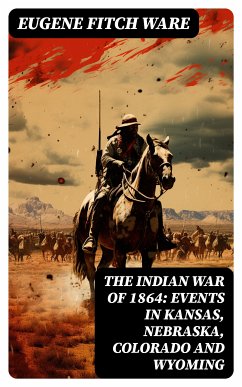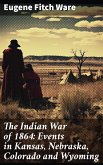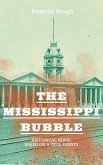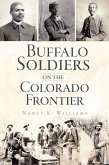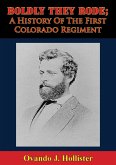Eugene Fitch Ware's "The Indian War of 1864: Events in Kansas, Nebraska, Colorado and Wyoming" intricately weaves a historical narrative that captures the tumultuous events amid the Indian Wars of the mid-19th century. Through a blend of vivid storytelling and meticulous research, Ware delves into the complex interactions between Native American tribes and United States settlers, intertwining personal accounts and governmental actions. His literary style reflects the urgency of a journalist with the reflective depth of a historian, positioning the text as both an engaging chronicle and a scholarly examination within the broader context of American expansionism and indigenous resistance. Ware, a veteran of the Civil War and a prominent poet, possessed a profound understanding of conflict and its repercussions on human lives. His experiences shaped his portrayal of this pivotal moment, infusing the narrative with a sense of empathy for those caught in the crossfire. As a member of a generation grappling with the moral implications of westward expansion, Ware's voice serves as a crucial counterpoint to the often one-sided historical accounts of indigenous encounters. This meticulously researched work is a vital contribution for scholars, students, and general readers alike who seek an informed perspective on a defining period in American history. An essential read for anyone interested in the complexities of frontier life and the often-overlooked narratives of the indigenous peoples during this expansive era.
Dieser Download kann aus rechtlichen Gründen nur mit Rechnungsadresse in A, B, BG, CY, CZ, D, DK, EW, E, FIN, F, GR, H, IRL, I, LT, L, LR, M, NL, PL, P, R, S, SLO, SK ausgeliefert werden.

